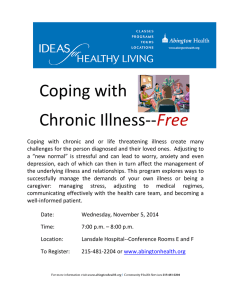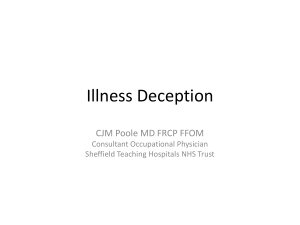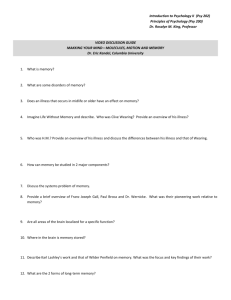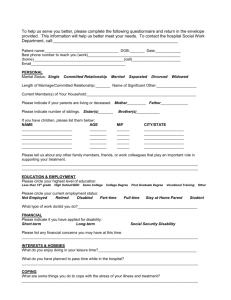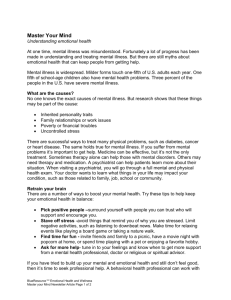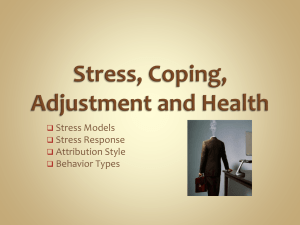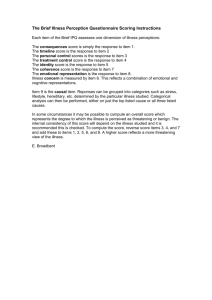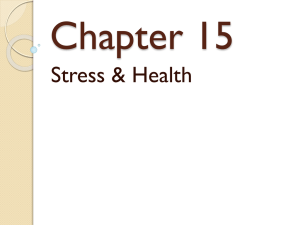Health psychology – Applying psychological principles to help
advertisement
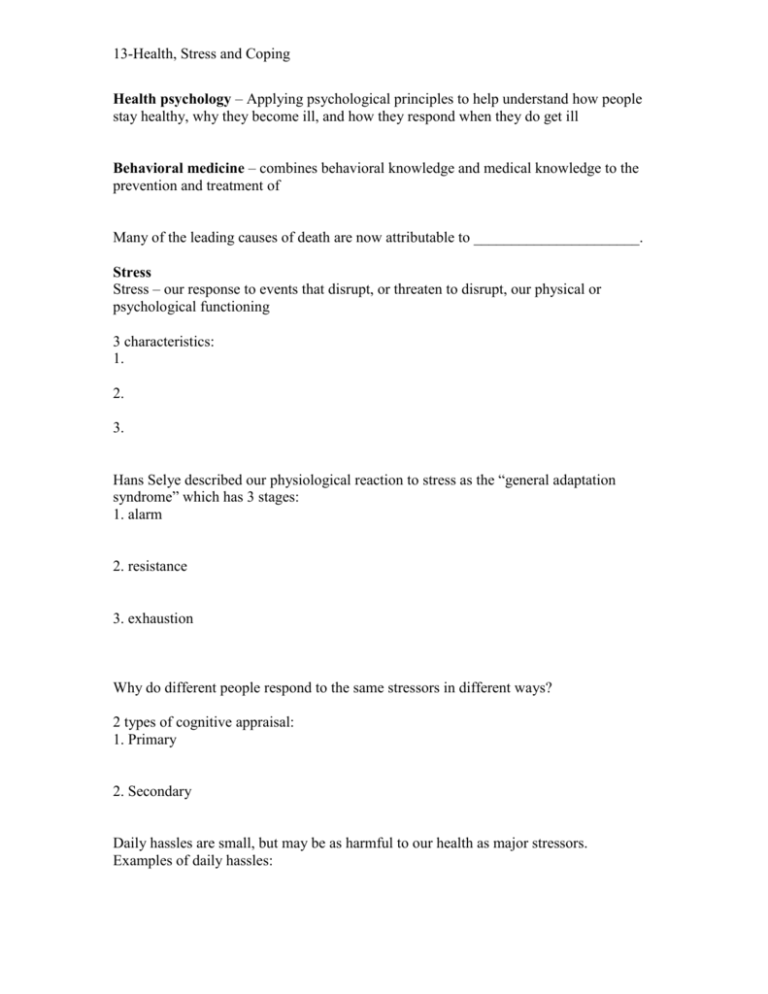
13-Health, Stress and Coping Health psychology – Applying psychological principles to help understand how people stay healthy, why they become ill, and how they respond when they do get ill Behavioral medicine – combines behavioral knowledge and medical knowledge to the prevention and treatment of Many of the leading causes of death are now attributable to ______________________. Stress Stress – our response to events that disrupt, or threaten to disrupt, our physical or psychological functioning 3 characteristics: 1. 2. 3. Hans Selye described our physiological reaction to stress as the “general adaptation syndrome” which has 3 stages: 1. alarm 2. resistance 3. exhaustion Why do different people respond to the same stressors in different ways? 2 types of cognitive appraisal: 1. Primary 2. Secondary Daily hassles are small, but may be as harmful to our health as major stressors. Examples of daily hassles: 13-Health, Stress and Coping Stress and Health: *There is a relation between our stress level and our immune system. Antigen – Lymphocyte – There are things that we can do to help deal with stress, one of which is seeking social support. How would social support be related to better health? *Ways people cope with stress: 1. 2. Symptom Perception Symptoms – Factors that affect symptom perception 1. 2. 3. Appropriate Illness Behavior versus Abnormal Illness Behavior Abnormal Illness Behavior – 2 extremes 13-Health, Stress and Coping 1. 2. *The first type of AIB: The health belief model helps us understand why people don’t seek health care when they are sick and why they don’t engage in behaviors that prevent illness. The health belief model looks at 2 factors: 1. 2. *The second type of AIB: Factitious Illness Behavior – Factitious Disorder – The most extreme cases of Factitious Disorder are known as Munchausen Syndrome: - *Examples So why do people do this? 13-Health, Stress and Coping *Self-Enhancement Model – Uniqueness/Feeling Special Knowledgeable/Feeling Smart Friendly with Doctor/Feeling Important Self-handicapping/Excuse for Failure ***Additional Note – Factitious Illness by Proxy (Munchausen by Proxy) is a form of this disorder in which the person exaggerates the symptoms of or induces illness in another individual (usually a child or elderly person in their care).
